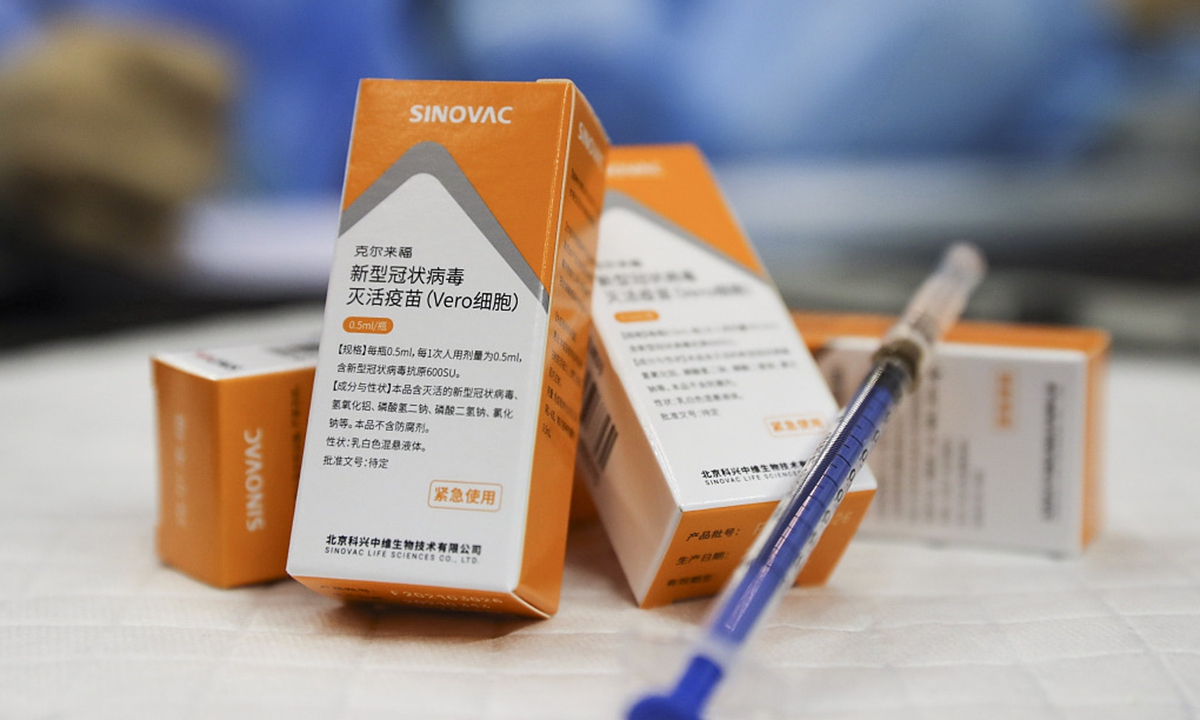New batch of 4000 liter Sinovac vaccine raw material to arrive in Brazil on May 26 for 7m doses

Sinovac COVID-19 vaccine. Photo: VCG
Brazil-based Butantan Institute who locally produces the Chinese-developed inactivated COVID-19 vaccine, in partnership with China’s Sinovac, has confirmed the reception of a batch of 4000 liters of materials from China for the production of about 7 million doses of vaccine on May 26, after a news claim that their production line was halted on last Friday due to China’s export clearance delay.
The forecast is that the shipment of the raw materials will take place on May 25, arriving on May 28, Sao Paulo Governor Joao Doria was quoted as saying in a statement Butantan Institute sent to the Global Times.
As soon as the inputs arrive, production is set to resume the next day and the new doses will begin to be delivered to the Ministry of Health within 15 to 20 days, it said.
Reuters reported Brazil's production of Sinovac vaccines was halted on Friday, as an expected shipment of raw materials awaits Chinese export clearance.
“Issues related to the Brazil-China diplomatic relationship may directly interfere with the release schedule for new batches of inputs,” the statement said.
Reuters reported that Doria blamed the delay on Brazil’s federal government’s "diplomatic ill-will" toward China, but Chinese experts did not stand on the attribution.
The most common technical problem in cross-border logistics is that spectators have doubts about certain items or a particular process, and it needs to be re-checked, which can delay the schedule.
Brazil's state-owned Butantan Institute, Sinovac's primary global partner in clinical trials, told the Global Times in a previous interview that it has launched two vaccine filling lines for the vaccine, each with the capacity to process 1 million doses per day.
Butantan processes and packages the raw material of vaccines; the active pharmaceutical ingredient (API) imported from Sinovac, it said.
A source close to Sinovac told the Global Times that Brazil remains in a state of acute shortage of vaccine raw material, as the daily new confirmed cases in recent days primarily remained at around 70,000.
To boost its national immunization plan, the Butantan Institute has delivered 47.2 million doses to the Ministry of Health since the beginning of the year. And it has supplied 70 percent of the country's entire vaccine system so far.

